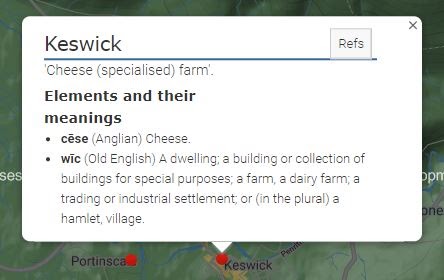Location Naming
Every place has a reason behind its name; whether that reason is obvious to us today or lost in time.

Places may get their names from many different ways.
February 18, 2021
Almost every place has a name, and every name has a story behind it. Some, like the “United States of America,” are pretty easy to figure out, while others like “Arizona” or “Payson” don’t have names that can be figured out without any outside knowledge. The majority of these names are adapted and shortened versions of words or phrases from other languages that have been changed over time. Some names even have complex myths or stories behind them, including the name for the continent of “Europe.” Other names don’t have any clear meaning at all, with the stories or languages behind them being lost to time.
Many names today are shortened versions of words or phrases originally used to describe a certain feature in the land. This results from many places not being important enough to give a proper name at first. They usually exist in areas that go under another name, or are only known to a couple of people. According to the University of Nottingham, the place is usually referenced by a key feature inside of it, a feature that is important enough to be talked about often. Over time, as more people learn of that feature, the words or phrases used to describe that feature are shortened, to make it easier to remember and reference. This shortened version of the name will often stick around as languages or people change, to the point where the name has no meaning to the people currently living in or using the area. One example of this is with the name for our state, Arizona. According to the AZ Digital Library, some people believe that the name came from “Al Shon”, which means “place of the little spring” in Oʼodham, a Native American language. Over time, the name was shortened to something similar to “Arizona”, to make it easier to reference. When the United States took over the territory, the name stuck around, but was changed slightly to fit more with the English language.
Places can also get their names in many other ways, too. Payson, in Northern Arizona, was originally named “Green Valley,” but was changed to match the name of a figure that helped to found it. The name “Europe” is an example of a place with many different theories behind its name. One is that it was based on the name “Europa,” which was the name of a Phoenician princess in Greek mythology. Another is that it is named after the Sumerian root of “Ereb,” which means darkness. This would be in reference to Europe being west to Sumer, where they would see the sun set. In addition to these other origins, there are many names without clear origins at all, with the names most likely coming from a language that has been lost over time.
While the origin behind the name of a place can vary, and some are completely unknown, they all came from somewhere. By studying old or foriegn languages, the ways places were established or discovered, or even mythology, these origins can be found and studied.








